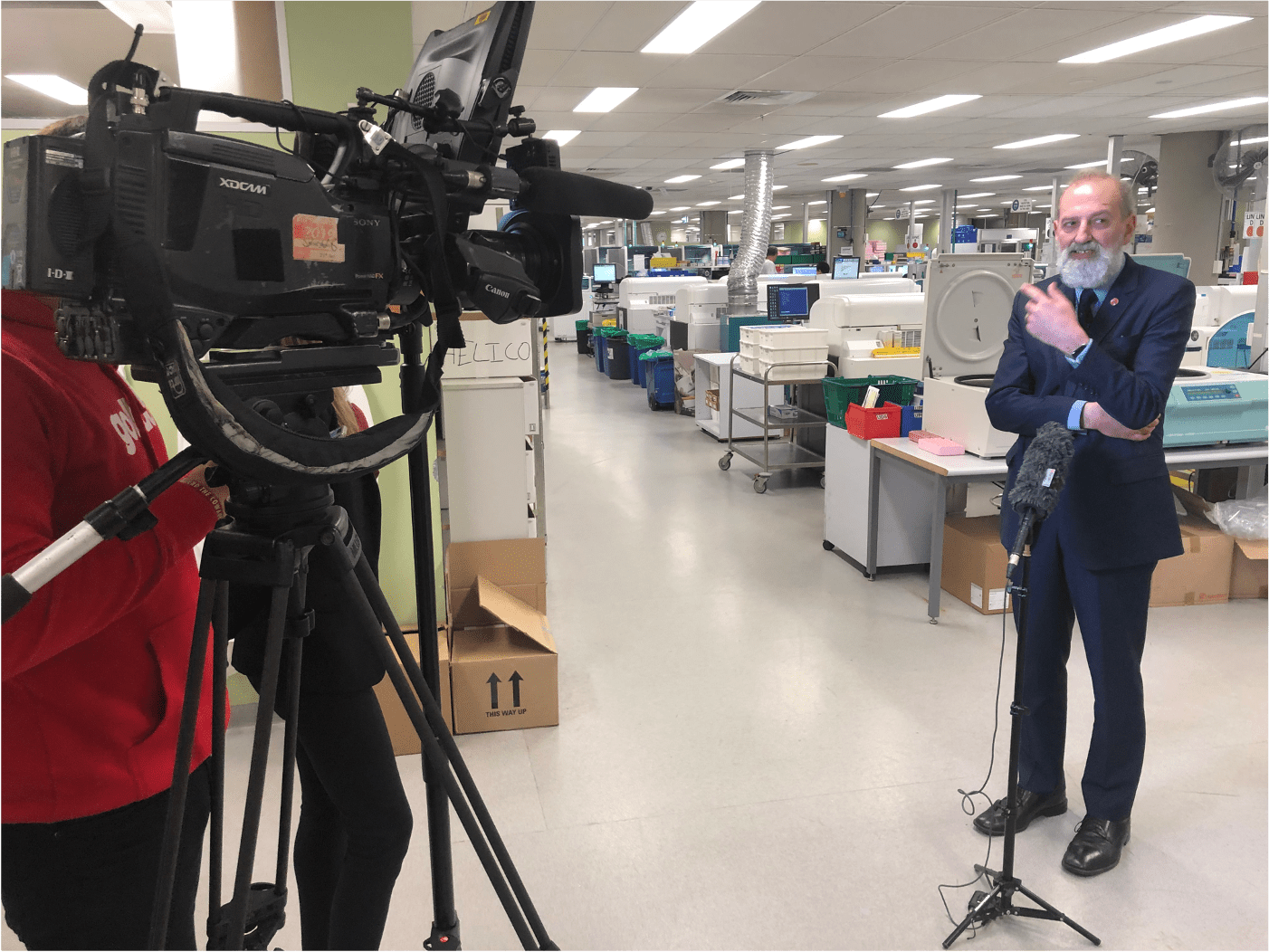
You’ve landed a big media interview. You’re trying to raise awareness of your life-changing therapy and this is the first opportunity to convey your message to the public with a goal of boosting adoption.
Media interviews are a daunting prospect when the stakes are this high – the pitfalls are real, but the platform to deliver your message to key audiences and build credibility is too good to ignore.
On retiring from the BBC in 2021, veteran political journalist Andrew Marr was asked about his most formidable interviewee to which the broadcasting giant lauded former US President Barak Obama: “Forward guessing every question with humour and grace, but tough.”
Of course, it would be unreasonable to set oneself the target of mastering interview techniques to a level expected of a world leader. After all, media talent is a skill best honed through repetition and no job in the world could match that of the US presidency for media exposure.
However, there are some techniques to make your experience more comfortable and rewarding.
We’ve drawn up a list of five, in no particular order:
Don’t wait for the right question to deliver your messages
A common mistake during an interview is to wait for the “appropriate question” before delivering a key message. The problem with this is the right context might not ever arrive and your opportunity is wasted. A journalist will have a good idea where they want a story to go, it’s your job to lead them down the right path.
If you don’t like a question build a bridge
‘Bridging’ is one of the most publicised techniques; the skill Marr was alluding to in his praise of Obama. It is deployed to bring an interview back over choppy waters to safer territory or to ensure a dud question isn’t wasted. If you feel an interview is going south, using bridging phrases like: “I don’t know the answer to that question, but what I can tell you…”. But it must be authentic and acknowledge the question, or you risk losing your audience.
Set the frame from the start
Health is a complex topic by nature which creates challenges in communicating with simplicity, however it does afford you more space to educate. Use the start of an interview as an opportunity to inform and set your desired framing. You achieve this by moving before your first question with a helpful introduction: “Before we get started, let me give you some background…”.
Use memorable language
Adding colour to an interview is hugely important. One word, phrase or simile might make the difference between your audience remembering your story or not. It will also stand out to a journalist desperately searching for a headline or broadcast-worthy soundbite.
Don’t answer a question you can’t
Don’t feel pressured into answering a question so awkward that no bridge in the world could move it back into a positive direction. A simple: “I’m sorry but I don’t know the answer to that question”, is fine. But once again, it must be genuine.
There are many more tips and considerations to executing a good media interview than the five we’ve outlined above. Please reach out to the team for more information on media training.